Today Current Affairs: 20th September 2021 for UPSC IAS exams, State PSC exams, SSC CGL, State SSC, RRB, Railways, Banking Exam & IBPS, etc
Table of Contents
Model Tenancy Act: Assam First State To Adopt:

Assam has become the first state to adopt the Model Tenancy Act. With this Assam Urban Areas Rent Control Act, 1972 gets repealed.
- New Act will spur growth & development of transparent & accountable rental market & balance the interests of tenants & landlords. It will provide ecosystem for rapid dispute resolution.
- The Union Cabinet, in June 2021, approved the Model Tenancy Act (MTA).
- States and Union territories can now adopt the Model Tenancy Act by enacting fresh legislation or they can amend their existing rental laws suitably.
Highlights of the Model Law:
- Applicable prospectively and will not affect the existing tenancies.
- Written agreement is a must for all new tenancies. The agreement will have to be submitted to the concerned district ‘Rent Authority’.
- The law also speaks about roles and responsibilities of landlord and tenants.
- No landlord or property manager can withhold any essential supply to the premises occupied by the tenant.
- If tenancy has not been renewed, the tenancy shall be deemed to be renewed on a month-to-month basis on the same terms and conditions as were in the expired tenancy agreement, for a maximum period of six months.
- Compensation in case of non-vacancy: On the expiry of extended period of six months of agreed tenancy period or the termination of tenancy by order or notice, the tenant shall be a tenant in default and liable to pay compensation of double of the monthly rent for two months and four times of the monthly rent thereafter.
- A landowner or property manager may enter a premise in accordance with written notice or notice through electronic medium served to the tenant at least twenty-four hours before the time of entry.
Significance:
- It is an important piece of legislation that promises to ease the burden on civil courts, unlock rental properties stuck in legal disputes, and prevent future tangles by balancing the interests of tenants and landlords.
Namami Gange Programme:
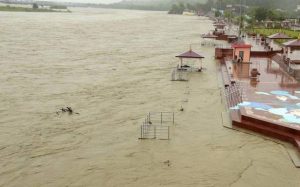
The 3rd edition of e-auction of prestigious and memorable gifts presented to Prime Minister of India Shri Narendra Modi is being held from 17th September to 7th October 2021 through the web portal https://pmmementos.gov.in.
- The mementos include sports gear and equipment gifted to the Prime Minister by winners of the Tokyo 2020 Paralympic Games and the Tokyo 2020 Olympic Games.
- Other interesting interesting artefacts includereplica of the Ayodhya Ram Mandir, Chardham, Rudraksh Convention Centre, models, sculptures, paintings, angavastras among others.
- Proceeds from the e-Auction shall go to the NamamiGange Mission aimed at conserving and rejuvenating Ganga.
- Narendra Modi is the first ever Prime Minister of India, who has decided to auction all the gifts he receives for a noble cause of conserving the lifeline of the country- the river Ganges through “NamamiGange”.
- ‘Namami Gange Programme’, is an Integrated Conservation Mission, approved as ‘Flagship Programme’ by the Union Government in June 2014 with budget outlay of Rs.20,000 Crore to accomplish the twin objectives of effective abatement of pollution, conservation and rejuvenation of National River Ganga.
Bad Bank:

The Union Cabinet on Monday approved Rs 30,600 crore government guarantee for the National Asset Reconstruction Company (NARCL), thereby paving the way for operationalisation of bad bank. One of the key ideas behind formation of bad banks is to de-stress the balance sheets of the banks.
- A bad bank is a corporate structure that isolates risky assets held by banks in a separate entity.
- It is established to buy non-performing assets (NPAs) from a bank at a price that is determined by the bad bank itself.
- The bad bank or NARCL will pay up to 15 per cent of the agreed value for the loans in cash and the remaining 85 per cent would be government-guaranteed security receipts.
- The government guarantee would be invoked if there is loss against the threshold value.
- The value of bad loans being carved out of bank books for transfer to the NARCL is around Rs 2 lakh crore.
- About Rs 90,000 crore in bad loans will be transferred in the first phase. The guarantee of Rs 30,600 crore will cover the entire pool of Rs 2 lakh crore.
Shanghai Cooperation Organisation (SCO):
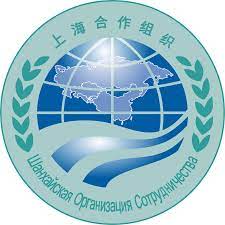
Prime Minister Modi participated virtually in the 21st Meeting of the Council of Heads of State of the Shanghai Cooperation Organisation (SCO), and through video-message in the Joint SCO-CSTO Outreach Session on Afghanistan.
- The 21st meeting of the SCO Council of Heads of State was held on 17 September 2021 in Dushanbe in hybrid format.
- The meeting was chaired by H.E. Emomali Rahmon, the President of Tajikistan.
Collective Security Treaty Organisation (CSTO)
- The SCO Summit was followed by an Outreach session on Afghanistan between SCO and the Collective Security Treaty Organisation (CSTO). Prime Minister participated in the outreach session through a video-message.
- The Collective Security Treaty Organization (CSTO) is an intergovernmental military alliance in Eurasia that consists of selected post-Soviet states.
- It was formed in 1992 and has 6 members: Armenia, Belarus, Kazakhstan, Kyrgyzstan, Russia and Tajikistan.
Planetarium Innovation Challenge:
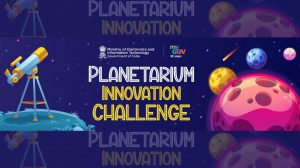
MyGov India, under the Ministry of Electronics and Information Technology (MeitY), has launched the Planetarium Innovation Challenge for Indian start-ups and tech entrepreneurs.
- The challenge invites applications from start-ups and tech entrepreneurs to develop state-of-the-art technology for our Planetariums.
- The challenge aims to bring together the tech firms and Start-ups (based out of India) with the potential to build an indigenous planetariums system software using latest technologies including Augmented Reality (A.R.), Virtual Reality (V.R.) and Merged Reality (M.R.).
- The Innovation Challenge is open to experts from all domains of Planetarium Technology.
- The applicants may include Start-ups, Indian Legal Entities; even Individuals (or Teams) are welcome to submit ideas.
- The first winner, second winner and third winner under the contest will get the cash prizes of Rs.5 lakh, Rs.3 lakh and Rs.2 lakh respectively.
World Bank Stops ‘Ease Of Doing Business’ Report:
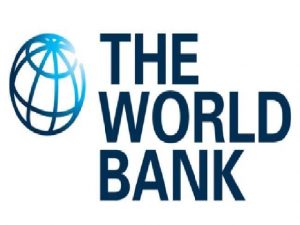
The World Bank would discontinue the practice of issuing ‘Doing Business report’ following an investigation reported “data irregularities” in its 2018 and 2020 editions (released in 2017 and 2019, respectively) and possible “ethical matters” involving bank staff.
- It will be working on a new approach to assessing the business and investment climate.
Ease of Doing Business Report:
- The report was introduced in 2003 to provide an assessment of objective measures of business regulations and their enforcement across 190 economies on ten parameters affecting a business through its life cycle.
- 10 different parameters namely, Starting a Business, Dealing with Construction permits, Electricity availability, Property registration, Credit availability, Protecting minority Investors, Paying Taxes, Trading across borders, Contracts enforcement, and Resolving Insolvency.
- It ranks countries on the basis of Distance to Frontier (DTF) score that highlights the gap of an economy with respect to the global best practice.
- For example, a score of 75 means an economy was 25 percentage points away from the frontier constructed from the best performances across all economies and across time.
India’s Performance:
- Notably, in three reports, released in 2017, 2018 and 2019, India ranked among the top 10 economies showing “the most notable improvement”.
- Of the 79 positions in the Bank’s Doing Business rankings that India gained between 2014 and 2019, 67 rank improvements happened 2017 onwards, with the biggest 30-rank jump happening in the Doing Business 2018 report, released in October 2017.
- The latest report, published in October 2019, placed India at 63rd in Doing Business, compared with 77th in 2018 and 100 in 2017.
- India, along with other top improvers, had implemented 59 regulatory reforms in 2018-19, accounting for a fifth of all reforms recorded worldwide.
- During 2018-19, India had implemented reforms across parameters such as ‘starting a business’, ‘dealing with construction permits’, ‘trading across borders’, and ‘resolving insolvency’. The government’s goal was to be among the top 50 economies by 2020.
- The scores for India used to be based on coverage of just two cities, with Mumbai carrying a weight of 47% and Delhi a weight of 53%.
Global Methane Pledge:

The US President has announced the Global Methane Pledge, which is an US-EU led effort to cut methane emissions by a third by the end of this decade.
- The announcement has come ahead of 26th Conference of the Parties (COP26) of United Nations Framework Convention on Climate Change (UNFCCC) in Glasgow, UK.
- This will also help in abiding by the targets of the Paris climate deal.
- The pact between the US and the EU sets a target of cutting at least 30% from global methane emissions, based on 2020 levels, by 2030.
- If adopted around the world, this would reduce global heating by 0.2C by the 2040s, compared with likely temperature rises by then.
- The world is now about 1.2C hotter now than in pre-industrial times.
Methane Gas:
- Methane is the simplest hydrocarbon, consisting of one carbon atom and four hydrogen atoms (CH4).
- It is flammable, and is used as a fuel worldwide.
- Methane is a powerful greenhouse gas.
- Approximately 40% of methane emitted is from natural sources and about 60% comes from human-influenced sources, including livestock farming, rice agriculture, biomass burning and so forth.
- More Global Warming Potential: It is nearly 80-85 times more potent than carbon dioxide in terms of its global warming capacity.
- This makes it a critical target for reducing global warming more quickly while simultaneously working to reduce other greenhouse gases.
- Promotes Generation of Tropospheric Ozone: Increasing emissions are driving a rise in tropospheric ozone air pollution, which causes more than one million premature deaths annually.
Urban Planning Reforms: NITI Aayog:
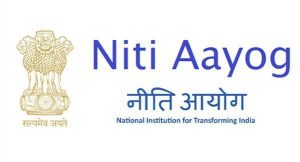
NITI Aayog has launched the report titled ‘Reforms in Urban Planning Capacity in India
- India’s population stood at 1210 million in 2011, with an urbanisation level of 31.1% (Census of India 2011).
- Urbanisation is an increase in the number of people living in towns and cities.
- The distribution of urban centres and the pace of urbanisation is not uniform across the country.
- Over 75% of the urban population of the country is in 10 States: Maharashtra, Uttar Pradesh, Tamil Nadu, West Bengal, Andhra Pradesh, Gujarat, Karnataka, Madhya Pradesh, Rajasthan, and Kerala.
- State-wise Scenario:
- Above National Average: Goa, Tamil Nadu, Kerala, Maharashtra, and Gujarat have attained over 40% urbanisation.
- Below National Average: Bihar, Odisha, Assam, and Uttar Pradesh continue to be at a lower level of urbanisation than the national average of 31.1%.
- Union Territories: NCT of Delhi, Daman and Diu, Chandigarh, and Lakshadweep, show above 75% urbanisation.
Shoonya Campaign:
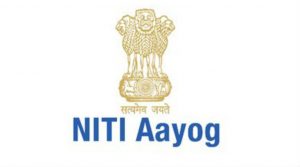
NITI Aayog and Rocky Mountain Institute (RMI) and RMI India have launched the Shoonya Campaign. RMI is an independent nonprofit organization founded in 1982.
- It is an initiative to promote zero-pollution delivery vehicles by working with consumers and industry.
- The campaign will promote the adoption of electric vehicles (EVs) in the urban deliveries segment and create consumer awareness about the health, environmental and economic benefits of electric vehicles.
- As part of the campaign, a corporate branding and certification programme is being launched to recognise and promote the industry’s efforts towards transitioning to EVs for final-mile deliveries.
- The government aims to see 6 million electric and hybrid vehicles on the roads by 2020 under the National Electric Mobility Mission Plan 2020.
- Faster Adoption and Manufacturing of Electric Vehicles in India (FAME India Scheme) for improving electric mobility in India.
- Implementation of smart cities would also boost the growth of electric vehicles.
Global Ozone Day:
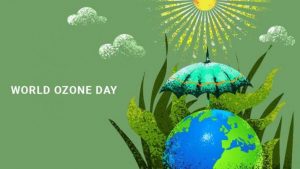
World Ozone Day is celebrated on 16th September each year to commemorate the signing of the Montreal Protocol.
- This international environmental treaty for phasing out of production and consumption of Ozone Depleting Substances came into force on this day in 1987.
- The Day is celebrated every year to spread awareness among people about the depletion of Ozone Layer and the measures taken/ to be taken to
- preserve it.
- The theme World Ozone Day 2021: “Montreal Protocol – Keeping us, our food and vaccines cool”.
Montreal Protocol:
- The Montreal Protocol on Substances that Deplete the Ozone Layer (the Montreal Protocol) is an international agreement made in 1987.
- It was designed to stop the production and import of ozone depleting substances and reduce their concentration in the atmosphere to help protect the earth’s ozone layer.
- The Montreal Protocol sits under the Vienna Convention for the Protection of the Ozone Layer (the Vienna Convention).
Kigali Amendment:
- Kigali Amendment was adopted by the Parties to the Montreal Protocol on October, 2016 at 28th Meeting of the Parties to the Montreal Protocol held at Kigali, Rwanda.
- Under the Kigali Amendment; Parties to the Montreal Protocol will phase down production and consumption of Hydrofluorocarbons, commonly known as HFCs.
- All amendments and adjustments of the Montreal Protocol, prior to the Kigali Amendment have Universal support.
India’s achievements in implementation of Montreal Protocol:
- India, as Party to the Montreal Protocol since June 1992, has been successfully implementing the Montreal Protocol.
- India has phased out Chlorofluorocarbons, Carbon tetrachloride, Halons, Methyl Bromide and Methyl Chloroform for controlled uses in line with the Montreal Protocol.
- Currently Hydrochlorofluorocarbons are being phased out as per the accelerated schedule of the Montreal Protocol.
- Hydrochlorofluorocarbons Phase out Management Plan (HPMP) Stage-I has been successfully implemented from 2012 to 2016 and HPMP Stage-II is currently under implementation from 2017 and will be completed by 2023.
- Government of India has recently decided to Ratify the Kigali Amendment to the Montreal Protocol.
What Is a Green Bond?
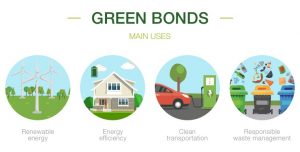
Power Finance Corporation Ltd (PFC), the leading NBFC in power sector, has successfully issued its first ever Euro Green Bonds.
- It is the first ever Euro denominated Green bond issuance from India.
- Moreover, it is the first ever Euro issuance by an Indian NBFC and the first Euro bond issuance from India since 2017.
What Is a Green Bond?
- A green bond is a type of fixed-income instrument that is specifically earmarked to raise money for climate and environmental projects.
- These bonds are typically asset-linked and backed by the issuing entity’s balance sheet, so they usually carry the same credit rating as their issuers’ other debt obligations.
- Green bonds may come with tax incentives to enhance their attractiveness to investors.
- The World Bank is a major issuer of green bonds. It has issued 164 such bonds since 2008, worth a combined $14.4 billion. In 2020, the total issuance of green bonds was worth almost $270 billion, according to the Climate Bond Initiative.
- Green bonds work just like any other corporate or government bond.
- Borrowers issue these securities in order to secure financing for projects that will have a positive environmental impact, such as ecosystem restoration or reducing pollution.
- Investors who purchase these bonds can expect to make as the bond matures.
- In addition, there are often tax benefits for investing in green bonds.




